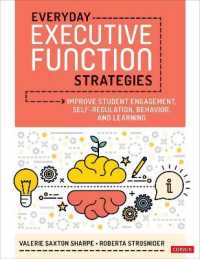- ホーム
- > 洋書
- > ドイツ書
- > Social Sciences, Jurisprudence & Economy
- > Education Science / Pedagogic
- > adult education
Full Description
This volume, a follow up to Reimagining Science Education in the Anthropocene (2021), continues a transdisciplinary conversation around reconceptualizing science education in the era of the Anthropocene.






